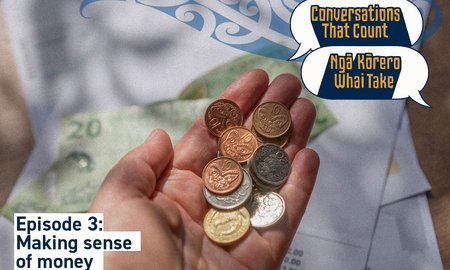
With the support of Westpac NZ, the longitudinal study was established in 2012 to track the evolving financial knowledge, attitudes and behaviours of a group of New Zealanders as they move through their lives. Starting at an age range of 18 to 22, the cohort underwent the second stage of the study in 2017 at 23-28 and now, five years on, the participants are aged 28 to 32. Of the original 350 cohort, there was a 66 per cent retention rate, with 232 participants returning to the third phase of the study.
The results showed an overall improvement in financial literacy and a narrowing gender gap, with a 17 per cent increase in the average score for females compared to six per cent for males. Confidence in individuals’ financial capability has also improved. However, a fairly wide gender gap remained, with only 29 per cent of females reporting their financial literacy as ‘Very Good’ or ‘Excellent’ compared to 44 per cent of males.
The new wave of data also showed how life experience has replaced parents as the primary source of information on personal financial matters. While participants still have some reliance on their parents for financial information, their influence has dropped from 47 per cent in 2017 to 26 per cent, with life experience as the main source expecting to dominate in future surveys.
The cohort were shown to have generally positive financial behaviours at this stage in their life, with 95 per cent having some form of insurance and 92 per cent participating in KiwiSaver. Participants reported being more proactive in seeking to improve their financial knowledge, with 67 per cent feeling good about their money management abilities and 73 per cent reporting they have spent time thinking about financial goals, credit cards and spending habits. Only five per cent of respondents had no form of insurance.
Director of the NZ Fin-Ed Centre Dr Pushpa Wood says it’s great to see the increase in participant satisfaction with their current financial situation.
“We’re seeing confidence in money management grow, with participants thinking more about their financial goals, moving from 51 per cent in 2012 to 73 per cent in 2022. The change in their life situations relating to their age is becoming apparent with home loans now being held by 55 per cent of participants, compared to less than one per cent at the beginning of this study.”
The turbulent nature of the last few years, including the pandemic and cost of living crisis, has had an impact on the cohort. Dr Wood says that the interim studies undertaken between the main surveys has shown the effect of these issues on financial behaviour.
“Experiencing a pandemic has helped impart some key lessons on our participants, with many remarking how they have since learned the necessity of being financially prepared for an emergency and getting insight into their own spending habits during the lockdown period. It will be interesting to see how this continues to develop within the next five years.”
Westpac NZ General Manager of Consumer Banking and Wealth Mike Norfolk says it’s never too soon for young people to start mapping out their financial future.
“Of all age groups, the Millennial and Gen Z generations have the most to gain by having a sound financial strategy. We encourage them to think regularly about their savings and investment goals, and use online tools and projections to check if they’re on track. If they want specialised advice, they should talk to their bank or a trusted adviser,” Mr Norfolk says.
“We’re concerned that women continue to lag behind men in terms of financial capability. Women live longer on average than men and tend to have lower KiwiSaver balances and fewer other investments, so it’s important they make a long-term plan for handling their finances and review it regularly as their circumstances change.”
A good level of financial resilience was found, with half of the respondents reporting they could easily raise $3000 for an emergency in one week. In addition, 40 per cent indicated they could live off their savings for six months or longer.
The data also shows that a third of the cohort are beginning to look further in the future and are considering long-term financial planning beyond five years. As part of this, a higher percentage of participants have reported taking steps to proactively enhance their money management skills.
About the study
The Young New Zealanders’ Ongoing Personal Finance Journey: A Longitudinal Study report is authored by Associate Professor Claire Matthews, Dr Jeffrey Stangl and Dr Pushpa Wood, and supported by Westpac NZ. The study aims to improve financial capability and wellbeing for New Zealanders through understanding issues relating to financial literacy.
The participants were identified randomly from the New Zealand electoral roll using six geographic locations: Auckland, New Plymouth, Palmerston North, Wellington, Nelson and Christchurch. The study involves an online questionnaire followed by a personal interview for deeper understanding of the answers provided every five years, with periodic communications and intermittent surveys occurring with the participants between each stage.
Read the latest Longitudinal Study on the NZ Fin-Ed Centre page.
Related news
Collaboration to professionalise the financial capability workforce the first of its kind
A collaboration between the Ministry of Social Development (MSD) and Te Kunenga ki Pūrehuroa Massey University will help upskill the workforce dedicated to providing financial mentoring services across Aotearoa New Zealand.

Making sense of money
In this month's episode of Conversations That Count - Ngā Kōrero Whai Take, we take a good look at what we really know about money.

Covid-19 reveals importance of emergency savings
The importance of being financially prepared for an emergency is one of the key lessons Kiwis learned from the COVID-19 pandemic, according to a new report from Massey University's Fin-Ed Centre.
